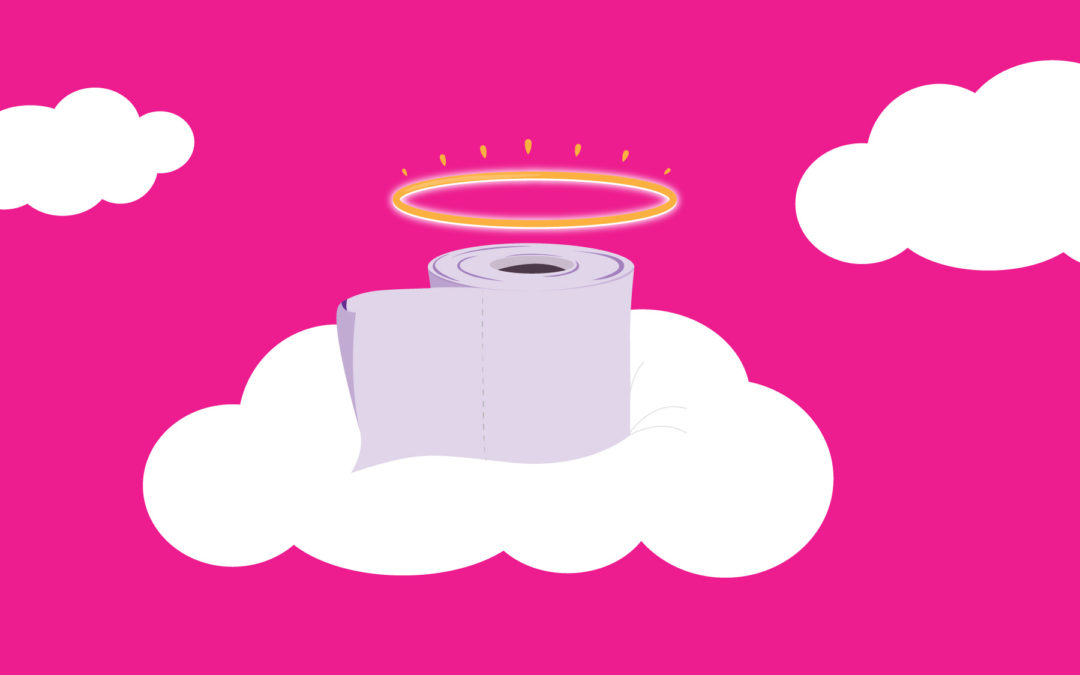Well, there’s a sentence I never thought I’d write.
The world seems to have gone completely mad in the last few weeks.
People are fighting in supermarkets. The elderly are confined to their homes.
Stressed parents are home schooling their kids.
Americans are queuing round the block to stock up on guns and ammo.
And everyone else seems obsessed with toilet roll.
What is it about loo roll that gets people so anxious to get their hands on some?
A few have suggested that they need a good supply to blow their noses, once the dreaded virus hits town.
Others have mused that it’s to do with control: if you feel out of control in a situation, you focus on the small things you can actually manage confidently.
Apparently wiping your bum is high up on the list.
But, having just finished a course in behavioural economics, I find myself recognising some patterns of behaviour that psychologists have been talking about for a long time…
So, here’s my take on what’s happening in the brains of people, all over the world:
Robert Cialdini is the Professor of Psychology at Arizona State University and author of the book ‘Influence: The Psychology of Persuasion’.
To many, he’s the Godfather of psychology and human behaviour.
Cialdini’s research into the factors that motivate us to take action – whether it’s to book theatre tickets, buy a new lawnmower or pay twice the price for a particular brand of jeans – led him to create the six ‘Principles of Persuasion’.
One of these principles is ‘scarcity’.
If something is (or appears to be) rare, people are instantly drawn to it.
Simply telling customers that stock is limited can boost sales. Restrict people to ‘5 items per person’ and they will spend more money in your store than if you didn’t impose a limit at all.
It seems irrational, but it works.
So, with loo roll being in apparent short supply, people are becoming fixated with it.
And fighting over it.
Of course, social and mainstream media are intensifying the situation, showing row upon row of empty shelves. Causing people to grab as much as they can, whenever they see it.
But really, it’s not their fault. It’s human nature.
Luckily, I have my toilet roll delivered by Who Gives A Crap, (who, incidentally, sent me a fantastic email, reassuring me that my next delivery was in good hands, and that in the meantime, I should think about being neighbourly and offer one of my spare rolls to someone in need. Bravo, WGAC!)
Anyway, back to business.
The second cognitive bias at play in the loo roll game, is to do with social norms.
If you see lots of people (particularly in your peer group) acting in a certain way – whether it’s good or bad behavior – it quickly becomes normalised.
Have you ever seen a group of people running down the road?
If enough people run past you, the chances are that you’ll start running, too.
You have no idea whether you’re running away from danger, or towards something exciting. Nevertheless, your instinct tells you to join the crowd or face the consequences.
Of course, all this happens in our subconscious mind.
We don’t stand there weighing up the pros and cons of our actions, but there is always a tipping point at which we feel compelled to take action.
And this is what’s happening in supermarkets all over Europe.
People see trolleys piled high with toilet roll, pasta and flour, and they (subconsciously) think “there has to be some important reason why everyone’s doing this, I better get some too, before it runs out.”
In short, us humans are much easier to manipulate than we would ever like to admit.
Obviously, some of the stockpiling is a direct result of fear.
We’re in an unprecedented situation.
Nobody knows what will happen next, so we’re doing the best we can to prepare for an uncertain future.
I just hope that if the worst does happen, we’ll all be there for the most vulnerable people in society, offering a spare toilet roll, a bag of pasta or an elbow bump when it’s needed.
Stay safe out there, people.


